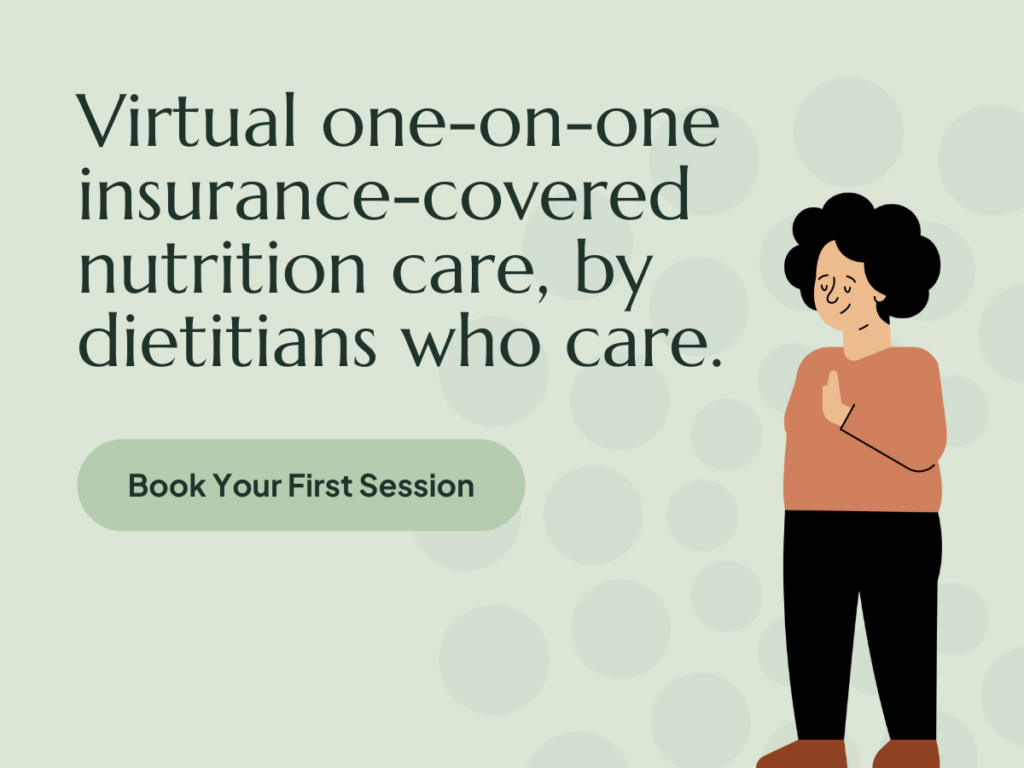Culina Health Dietitians come to us from a wide range of backgrounds—both in terms of their own lived experiences, and their practical/work experience that they’re bringing to their outpatient work. One of our team members, Lauren Rudy, holds a unique credential as a Certified Nutrition Support Clinician, in addition to being a Registered Dietitian. Read on to hear more about this certification and how it impacts her work with Culina Health patients!
- CNSC credential demonstrates expertise in managing enteral and parenteral nutrition support for patients.
- Collaboration with healthcare teams is essential for effective patient nutrition management.
- Regular communication with patients and families fosters better nutrition support outcomes.
- Nutritional support doesn't always mean a lifetime of supplementation; weaning off is possible.
- Families should ask questions and know their points of contact during nutrition support journeys.
What is a CNSC and how is it different from other dietitian roles?
Dietitians who hold the CNSC (Certified Nutrition Support Clinician) credential have established competency in the knowledge and skills needed to manage enteral and parenteral (IV) nutrition. Dietitians, nurses, pharmacists, doctors, PAs can all obtain this credential. Dietitians who hold this credential often work in the ICU and home infusion settings but there are many other opportunities as well. Some CNSC dietitians even place feeding tubes!
What is your background in nutrition, and why did you choose to pursue a CNSC credential?
My first role after passing my exam was covering a maternity leave position in an Outpatient Infusion clinic where I had the opportunity to work closely with patients undergoing chemotherapy. I then transitioned into an inpatient role and I was fortunate to begin my career at a hospital where the doctors really trusted the dietitians which gave us a lot of autonomy when it came to recommending nutrition interventions. I also had an amazing preceptor who really advocated for our profession and took me under her wing to make sure I built confidence in my more advanced nutrition skills. After relocating to Seattle, I was hired for a remote dietitian position managing people who required home parenteral nutrition and it was required that I obtain my CNSC.
How were you working with patients in your role as a CNSC?
I’ve worked with patients with many conditions ranging from those who need shorter term nutrition support (ileus, recovering from a stroke, post-op complication following resections, pregnant moms with severe hyperemesis gravidarum) as well as those who have more chronic conditions: motility disorders (gastroparesis, Ehlers Danlos, CIPO) severe IBD needing resections, short bowel syndrome, complications following gastric bypass surgery, GI cancers, and those born with congenital conditions.
My role as the nutrition support dietitian was to review the patients’ medical history and current symptoms/presentation and make assessments for the appropriate form of nutrition support that would best benefit them. In the inpatient setting I was often recommending the formula, rate, volume, tube placement to the provider. When I worked in the home infusion setting, I had a lot more responsibility and predominantly worked with patients who require parenteral nutrition. I worked closely with the pharmacy team and would write the prescription, manage the electrolytes, as well as schedule routine phone check-ins with the patients to assess their tolerance, status, and progress. Because this role was remote, I also relied heavily on communication with home health nurses, doctors, and other members of the patient’s treatment team to provide the best care.
How did you collaborate with other members of care teams?
With patients who are receiving nutrition support, communication is the foundation. In the hospital setting, your patient is usually in the same place so being able to put eyes on them and ask questions is relatively easy. In the home setting, you are rarely, if ever, seeing the patient in person so regular phone call check-ins with the patient or their family members are vital. Running through their symptoms and asking questions about physical status to ensure they are receiving the appropriate volume for hydration, appropriate electrolytes for any losses, appropriate calories to support a healthy weight, all of this relies on being able to communicate regularly and effectively. I would also talk with their nurses who saw them for lab draws in the clinic or who visited them at home to follow up on any questions or concerns. I would call and talk to providers if I was worried about specific labs or deficiencies or even to confirm our long term goals/timeline with nutrition support.
What is a myth about nutrition support that you’d love to bust?
Nutrition support does not mean you can’t eat and it’s not always forever! Oftentimes people are worried that if they say yes to any form of nutrition support it means you can never eat again. While some conditions do require lifelong supplementation, that’s not always the case. I’ve worked with plenty of patients who needed parenteral or enteral support that were able to wean off eventually and get back to eating solid food again.
How has being a CNSC influenced your approach in your role with Culina Health?
While initially I pursued the CNSC exam as a requirement for my job to certify me to write total parenteral nutrition (TPN) prescriptions, I found that it has also helped me to be a better clinician overall. My role in the home infusion sector forced me to ask more questions, be more of a detective, think out of the box, and in general think more critically; especially when it came to lab results – managing acid-base disorders, adjusting electrolytes/anticipating electrolyte losses with severe vomiting/diarrhea, etc. It also improved my confidence with taking on more responsibility. Nutrition support can be an incredible, sometimes life-saving tool for people who need it but it also can cause harm if it’s not managed appropriately. It helped me improve my communication skills, as I was often reaching out to other members of the treatment team – doctors, PAs, nurses – to talk about the patient’s progress, make recommendations, and advocate for my patients. While I may not be managing as many electrolytes within my role at Culina Health, I still prioritize thinking critically about all of my patients and working to communicate on their behalf when appropriate.
Any advice you’d give to families navigating nutrition support at home?
Ask all the questions. There is never a dumb question. While this is of course overwhelming for the patient needing the nutrition support, it can be equally as stressful for the family/caregiver. Know who your points of contact are if something doesn’t seem right. If you are on home nutrition support, you likely will have support of a dietitian, nurse, or pharmacy through the company providing your supplies. Oftentimes they also have an on-call line. Make sure you feel comfortable and confident with the teaching and instructions.
Work with a RD at Culina Health
Looking for personalized nutrition support for a chronic condition, or just generally want to learn the basics of a balanced diet? The team of Registered Dietitians at Culina Health is here for you! We accept most major insurance plans and are registered in all 50 states. Book your first appointment today!






